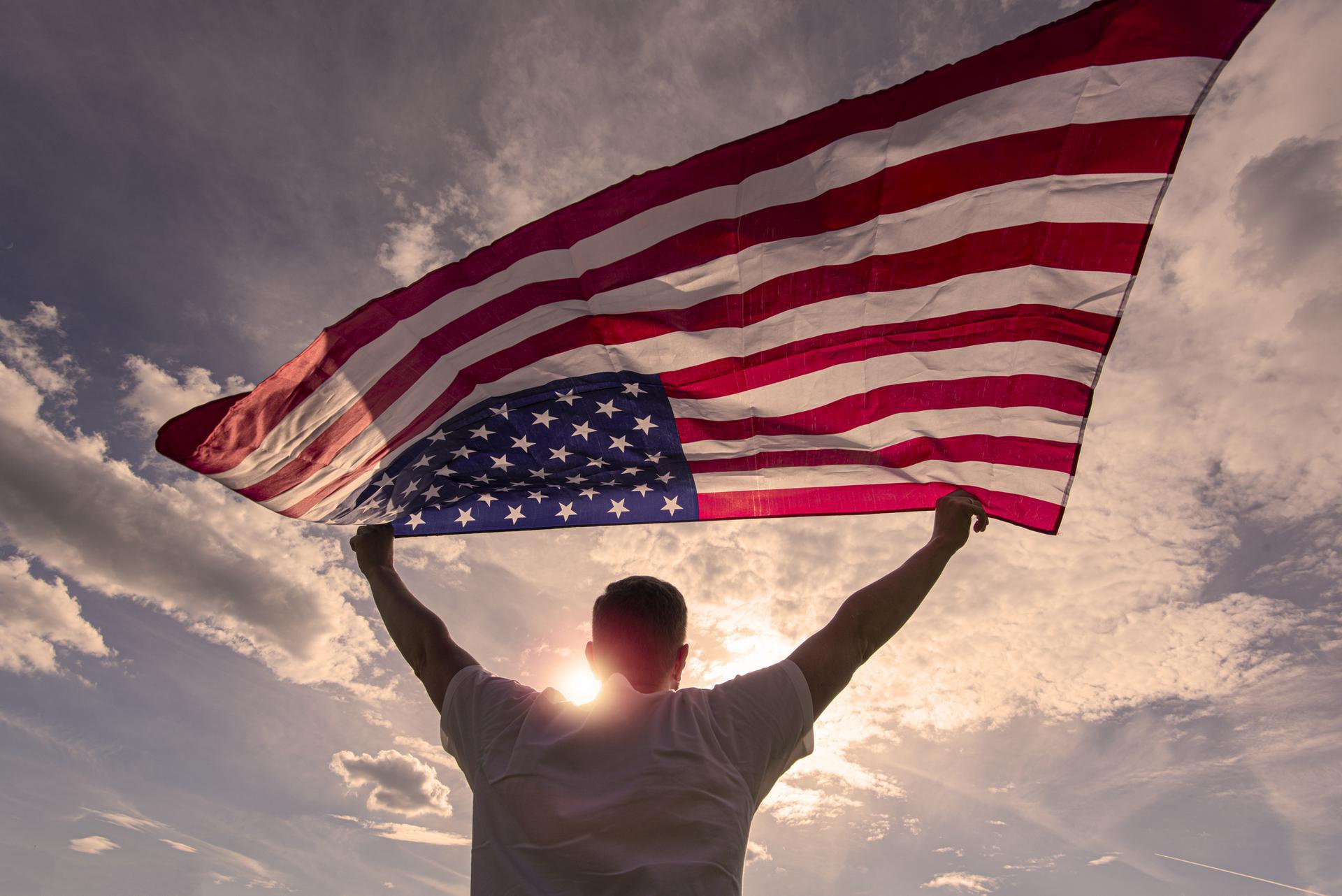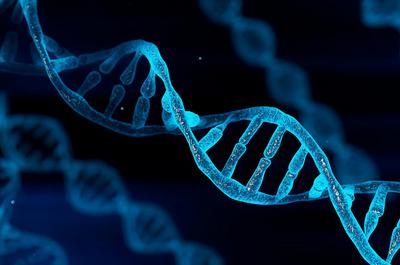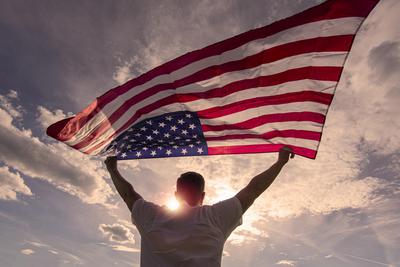Guide to Immigration DNA Testing
When is DNA Required for Immigration? Immigration DNA testing is sometimes required for visa and/or citizenship application purposes when the U.S. Citizenship and Immigration Services (USCIS) requests additional evidence to verify an applicant's connection to their American petitioner.
Prior to any visa relationship DNA testing, the applicant and naturalized petitioner who is applying in support of their foreign relative to receive a U.S. visa will be required to submit various documentation. These resources are used to corroborate the claim of a parent, sibling, or half-sibling biological relationship, and typically include evidence such as a birth and marriage certificate.
Though evidence of a family relationship may suffice to move forward with the visa application process, there are instances in which an applicant or petitioner never received or no longer possesses such resources. In such cases, along with instances of suspected application fraud, the USCIS may request visa relationship DNA testing regardless of the submitted documentation.

Who Needs an Immigration DNA Test?
When the US Department of State reviews a visa application, they want evidence that proves that the applicant is truly related to the American sponsor. Accordingly, if you are a petitioner applying for a relative to get a visa to come to the United States, they will ask you to provide documents, like birth certificates and family photos, to substantiate those relationships. Absent these things, or even if you have documents and they decide they still want more proof, an Immigration DNA Test is required to verify your relationship with the petitioner.
Why do we need DNA for immigration?
A DNA test indisputably proves a family relationship like paternity, maternity, and full or half-siblings. A DNA test is the only method that can be used to prove a biological relationship if you don't have documents, or if the documents you provide are not accepted or not sufficient.
If a Consular Officer suggests DNA testing, it is entirely voluntary, but it is in your best interests to proceed with their suggestion. The government does not pay for the test – all costs are paid by the applicant or the petitioner. And, you should know, taking a DNA test in no way guarantees you'll get approved for a visa. And, there is also the small risk that the biological relationship you thought you had is not really true; in other words, sometimes people find out things they really didn't set out to find, such as their father, brother, sister, or even mother is not really related to them.
What is the Immigration DNA Testing Process?
On behalf of both the petitioner and visa applicant, there are specific steps both individuals must follow to ensure a smooth and seamless application process. If you receive a request to submit additional evidence using DNA testing, be sure to follow these four steps.
1. Locate an AABB-Accredited DNA Testing Facility
If you or the visa application petitioner receive a DNA testing recommendation, you must first locate a DNA testing service accredited by the American Association of Blood Banks (AABB). Health Street can help connect and schedule you with a lab that provides AABB immigration DNA testing in your area to ensure full regulatory compliance.
2. Complete Petitioner DNA Sample Collection
After scheduling a testing appointment with an accredited laboratory, the petitioner must attend in person to supply a DNA sample via the buccal swab method. The AABB collection site will then send this sample directly to the nearest AABB lab site for DNA comparison. With your DNA on hand, this AABB lab site will forward a test kit to the U.S. Embassy or Consulate in the relative's residing country.
3. Applicants Schedule an Appointment With Embassy or Consulate and Complete Payment
When the U.S. Embassy or Consulate in the applicant's country receives the DNA kit, the applicant will be contacted to schedule an appointment. Prior to the family member's appointment, it's important that they complete the payment with the professional who will complete the DNA sampling. Proof of payment must be provided at the time of the appointment and failure to do so will result in rescheduling.
4. Applicants Appear for DNA Collection Appointment
With an appointment scheduled and DNA testing services receipt and passport in hand, the applicant must go to the Consular Section of the U.S. Embassy or Consulate to have their DNA sample collected. DNA collection will be completed by an Embassy-designated physician or medical technician. The sample will then be sent back to the U.S. AABB-accredited lab originally used by the petitioner.
If an Immigration DNA test is requested, here's what you need to know:
Are Needles Involved?
No. Today, DNA testing by buccal (inner cheek) swab is highly accurate and completely painless. By simply swabbing the inner cheek with a cotton swab (similar to a Q-tip), we can obtain enough of your cells to perform the test. It's easy, non-invasive, and fast.
Immigration DNA Testing Kit Fees
Fees for Immigration DNA Testing vary depending on the type of test that is requested, and the cost of shipping to the home country. For detailed information about this service, please call 888-378-2499.
Accuracy of Cheek Swab vs. Blood Test
The accuracy of a DNA test has to do with the DNA itself, not the method for collecting it. Therefore, a cheek swab test is identical in accuracy to a blood test. That's why we don't use blood anymore – it's just not necessary. Positive paternity and maternity results always return a reliability of 99.9 percent or greater, while sibling studies can vary depending on the two individuals' DNA profiles in comparison with one another. The US Consulate offices typically require a 99 percent or greater degree of certainty in order to establish a relationship. Therefore, sibling studies carry a small risk of inconclusiveness that should be considered before proceeding with the test.
Providing a DNA Sample – the Petitioner
First, you must select a laboratory that is accredited by the American Association of Blood Banks (AABB). While Health Street is not itself an accredited laboratory, all of our Immigration DNA tests are set up and processed by accredited labs. We guarantee any Immigration DNA tests that are initiated by working with Health Street will be acceptable to the US Consular Officer on the basis of this. Once you decide you want to proceed, you should schedule an appointment and make the appropriate payments.
You should also be careful not to work with companies that make false claims of AABB accreditation or affiliation. The US Department of State is not going to accept results from a non-accredited lab, and there have been reports of fraudulent claims being made by some companies. Health Street is accredited by the Better Business Bureau.
Once you verify your test and schedule your appointment, you will simply come into a collection site, which will send your specimens to the AABB laboratory.
Providing a DNA Sample – the Applicant
The AABB lab will ship the DNA collection kit for the applicant to the U.S. Embassy or Consulate where your relative(s) will be tested, in their home country. Shipping costs vary by country and must be paid by the Applicant. Under no circumstances will the kit be shipped until after the Petitioner has provided his/her specimens. (In cases where the applicants are already residing in the United States, of course, this step is not necessary, as the applicants can be tested here). As soon as the U.S. Embassy or Consulate receives the collection kit, they will contact your relative, the applicant, to schedule him or her to come in for the specimen collection. In some countries, there is a fee charged before the applicant can come into the Consulate office. If there is a fee, your family member(s) must pay this directly in their home country. This small fee is separate from the costs of the test that are paid in the US. The applicant must bring the following documents with them when they come to the appointment at the Consulate or Embassy:
The Immigration DNA Test Analysis and Report
Once the cheek swabs are done, the specimens will be shipped back to the AABB laboratory in the USA where the petitioners' specimens are awaiting their arrival for testing. Analysis typically takes 2 to 5 business days from the time these specimens arrive from abroad. As soon as the report is ready, the laboratory will send the results directly to the US Consular Office. At this point, they will contact the petitioner to continue with the application process.
Keep in mind that the US Consulate or Embassy must receive the Immigration DNA Test report directly from the AABB lab. You cannot bring it to them yourself. Health Street will, of course, provide you with a copy of the report for your records, and rest assured, our AABB lab will send the report directly to the Consulate or Embassy.
Next Steps
If the relationship is proven, you're in good shape. Though even a 99.99 percent result doesn't guarantee that your relatives will be approved to come here, it has been shown to be a tremendous help in most cases.
For any and all immigration DNA testing needs you may have, remember that Health Street has you covered. We'll help connect you with an AABB-accredited lab to ensure full testing compliance and avoid any further delays in your relative's visa application.
Frequently Asked Questions
How Does USCIS Handle DNA Testing?
While USCIS DNA tests are not always required, USCIS may request testing if the submitted evidence does not demonstrate proof of biological relationship or if it contains any inaccuracies that could lead to suspicions of fraud.
When immigration DNA testing is required, USCIS will first issue either a Request for Evidence (RFE) or a Notice of Intent to Deny (NOID) in response to a visa application or petition. From here, the applicant and/or petitioner must use a USCIS-approved DNA testing lab to conduct testing. Approved visa relationship DNA testing labs must be accredited by the American Association of Blood Banks (AABB) to ensure complete testing accuracy.
Though Health Street is not an AABB-accredited laboratory in itself, our immigration DNA testing services are always scheduled with and processed by an AABB-accredited laboratory. We guarantee that all AABB immigration DNA testing initiated by Health Street will be accepted by the USCIS for evidence request purposes.
What is the Accuracy of DNA Testing?
Positive paternity and maternity results always return a reliability of 99.9 percent or greater, while sibling DNA testing accuracy can vary depending on the two siblings' DNA profiles in comparison with one another.
For visa purposes, U.S. Department of State consular officers will only accept testing results demonstrating an accuracy of 99.5 percent or greater to support a biological relationship between a parent and child. For visa applications using DNA proof of a relationship between two siblings, a minimum accuracy result of 90% is required for full sibling testing and no less than 9% is required for half-siblings.
What Type of DNA Sample Method is Used?
The preferred collection method for immigration DNA relationship testing procedures is buccal swabs. This non-invasive and painless method of testing collects cells from inside the individual's mouth or cheek by using a cotton swab.
With the advancements made in DNA testing technology over recent years, blood samples are no longer required for AABB immigration DNA testing purposes. Buccal swab DNA testing now matches the high level of accuracy associated with DNA blood testing. Likewise, the use of buccal swabs for immigration DNA testing purposes makes it much simpler and safer to ship DNA specimens in and out of the country when dealing with foreign applicants.






